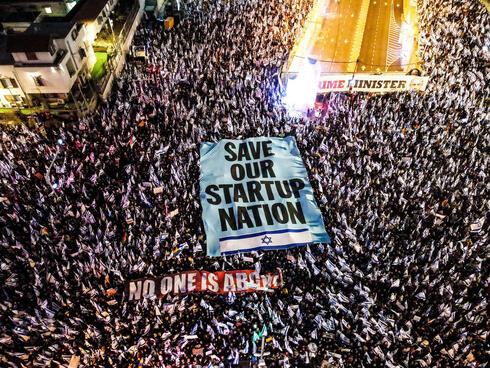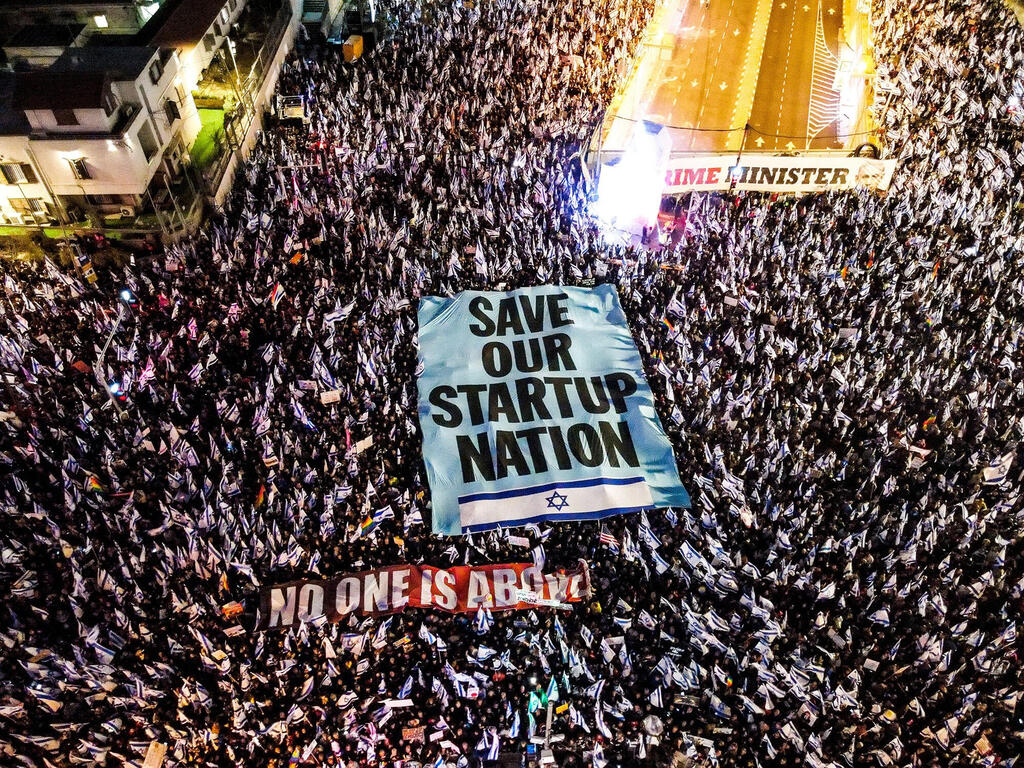
War-tested Israeli tech sector shows resilience but a quarter of startups relocate departments abroad
Study finds 27% of firms moved departments abroad while workers grapple with uncertainty.
Fifteen months of war, on the back of judicial upheaval, have shaken Israel’s high-tech industry. The sector has faced a decline in investments, significant challenges for employees serving in military reserves, brain drain, job reductions, and even logistical issues such as difficulties with international travel. Despite these challenges, Israeli high-tech continues to demonstrate resilience, largely due to past investments in foundational areas such as education, training, and business continuity programs.
"The numbers show the resilience of Israeli high-tech, but if we don't prepare, in a decade, we will find ourselves in a crisis," says Ronni Zehavi, CEO of HiBob, which conducted a study examining the effects of the war and the country’s security situation on the high-tech sector.
One of the notable findings in the study—conducted by "Lazar Research," headed by Dr. Menachem Lazar, using surveys of employees and managers in the high-tech industry, along with data from around 700 HiBob client companies in Israel—is the ratio of hiring to layoffs. At the height of the 2021 growth boom, the ratio showed 38% more hires than layoffs. By 2022, it dropped to 17%, and in 2023, amid judicial and security turmoil, it plunged to just 3.6%. Encouragingly, the ratio climbed to 7.6% in 2024, signaling some recovery in the industry.
"It’s also important to look at the global comparison," Zehavi points out. "While Israel achieved a 7.6% positive ratio between recruitments and layoffs, the global average was 5%, with the U.S. being the only country where the ratio exceeded Israel's."
The resilience of Israel’s high-tech sector is attributed to its agility and flexibility. "In Israel, if a company closes and employees lose their jobs, they are quickly absorbed by other companies," Zehavi explains. "An industry of 400,000 people allows laid-off workers to find new opportunities. By comparison, in France or Scandinavia, the employment conditions make mobility and flexibility much harder. This unique adaptability is part of the resilience we see in the Israeli ecosystem."
The study highlights that this flexibility enabled 64% of employees to retain their jobs in 2024, despite the turmoil. However, Zehavi cautions, "We must understand that resilience is not permanent. Several trends could weaken it, such as the erosion of core education, the lack of digital transformation in the public sector, the gap between the periphery and the center, brain drain, and the high cost and difficulty of international travel. The success we see today is a product of investments made a decade ago. Without continued investment and addressing critical issues, we won't be able to 'plant a new vineyard' that will yield a harvest in the future."
The preservation and development of high-tech are critical not only for its contribution to the GDP but also for its societal impact. According to the study, 62% of companies allocated resources to donations and volunteering in 2024 as a response to the war. However, the study also points to troubling trends, such as brain drain and a reduction in activity. Approximately 27% of companies relocated departments abroad due to the war, and 11% of employees have already moved or are in the process of relocating—mainly those aged 36–50. Among workers who served in military reserves during the war, 17% indicated they are relocating due to the current situation.
Despite fewer job openings, 36% of company managers reported difficulties in recruiting talent. This is largely due to employees’ reluctance to change jobs amid uncertainty. For junior workers, the situation is even more challenging: only 5% of companies opened junior positions in 2024. Zehavi highlights the impact of the AI revolution, which is automating tasks that were traditionally assigned to junior employees. "The solution is for high-tech companies to establish academies to train new graduates," Zehavi suggests. "For juniors, I recommend focusing on AI—it’s the entry ticket to the industry."
While the Israeli high-tech industry has shown remarkable resilience in the face of unprecedented challenges, Zehavi stresses the need for long-term planning. "The resilience we see today is the result of seeds planted a decade ago. Without continued investment and structural changes, we risk losing that resilience in the future."














